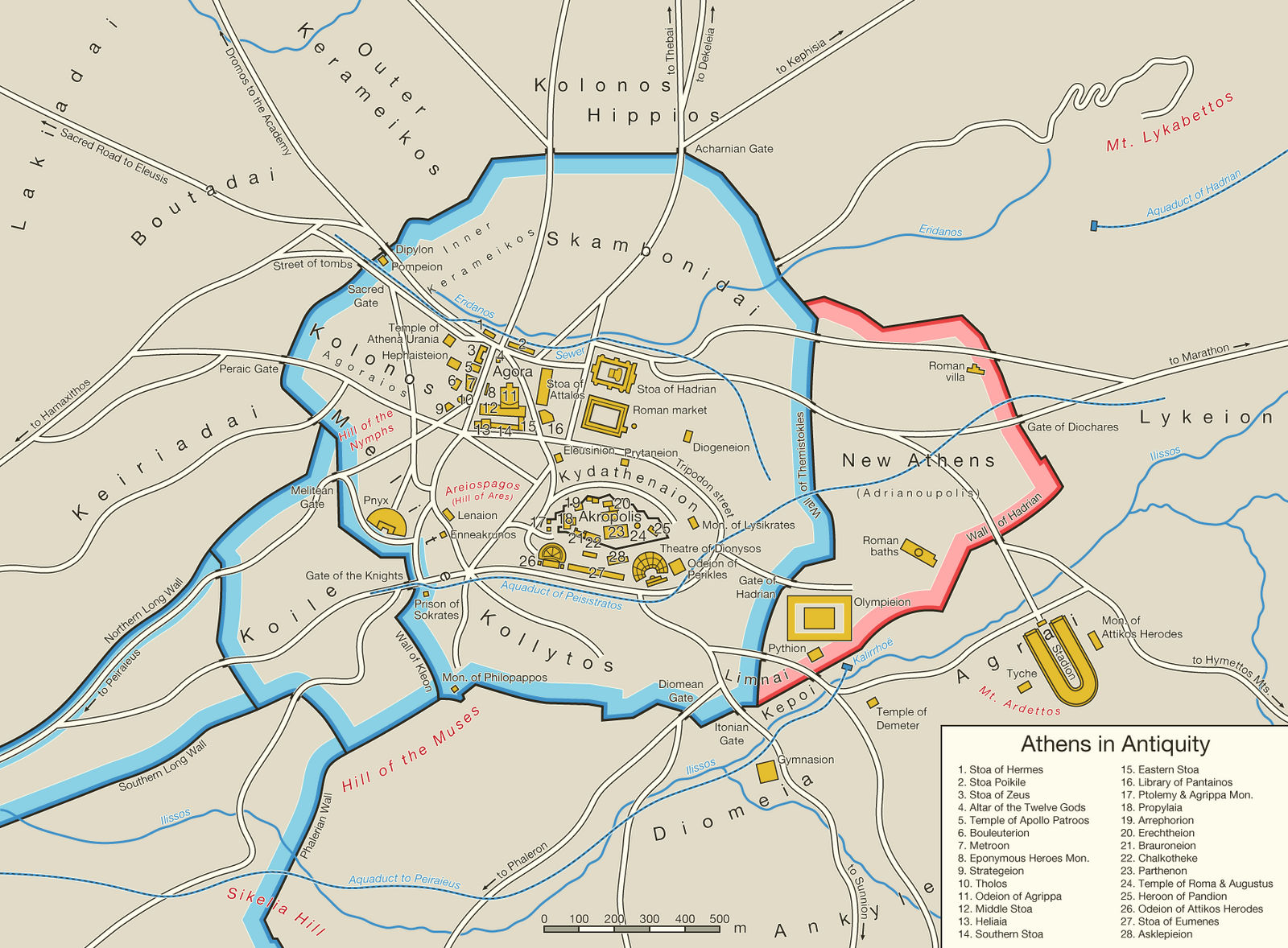ShopDreamUp AI ArtDreamUp
Deviation Actions
Suggested Deviants
Suggested Collections
You Might Like…
Featured in Groups
Description
The city of Athens (Ancient Greek: Ἀθῆναι, Athenai) was the urban centre of one of the leading city-states (Ancient Greek: πόλεις, (pl.) poleis) in Ancient Greece during the second half of the first millenium BC. It achieved its greatest prominence during its so-called Classical Era, which ran from 508 BC (establishment of democracy by Cleisthenes) to 322 BC (defeat by Macedon in the Lamian War). A remarkable zenith of political, cultural, philosophical and economic activity was attained especially during the fifth century BC, which saw Athens at the helm of the Greek defense against the invading Achaemenid Persian Empire in the Greco-Persian Wars (499 – 479 BC), masterminding key Greek victories at Marathon (490 BC) and Salamis (479 BC). Subsequent Athenian leadership of the Delian League allowed for a dominant Athenian position in the Greek world. During this time, Athens was the birthplace of several greats, notably the statesman Pericles, the playwrights Aeschylus, Sophocles and Euripides, the historians Herodotus and Thucydides, the physician Hippocrates and the philosopher Socrates. During the fourth century BC, Athens also became home to the Academy and Lyceum, led respectively by the philosophers Plato and Aristotle. Athens’ defeat in the Peloponnesian War (431 – 404 BC) saw the end of the Athenian empire’s hold over the Greek world and its position passed first to Sparta, then Thebes and finally to the Macedonian kingdom of Philip II, which defeated an Athenian-Theban coalition at the Battle of Charonea in 338 BC. The enormous conquests of Philip’s son Alexander the Great to 323 BC basically rendered the city-state obsolete as a form of government and defeat in the Lamian War in 320 BC kept Athens under Macedonian control, a situation which lasted until the Romans toppled Macedon at the Battle of Pydna in 168 BC and annexed all of Greece in 146 BC. Though no longer an independent political power, Athens continued to be a key centre of arts and learning throughout the Roman period and achieved a new zenith during the reign of Roman emperor Hadrian (AD 117 – 138), who visited the city multiple times and is credited with completing important structures, including a Stoa and the Temple of Zeus Olympius…
===================
===================
Image size
1710x1258px 836.11 KB
© 2016 - 2024 Undevicesimus
Comments50
Join the community to add your comment. Already a deviant? Log In
Nice map

































![[Nova Aetas] Roman Empire - Pax Aureliana](https://images-wixmp-ed30a86b8c4ca887773594c2.wixmp.com/f/395e4195-5cfd-4402-8595-52de0d84f0c2/degh5tk-2c62add7-47c2-4c46-acb7-2f7453c5edbe.png/v1/crop/w_184)


